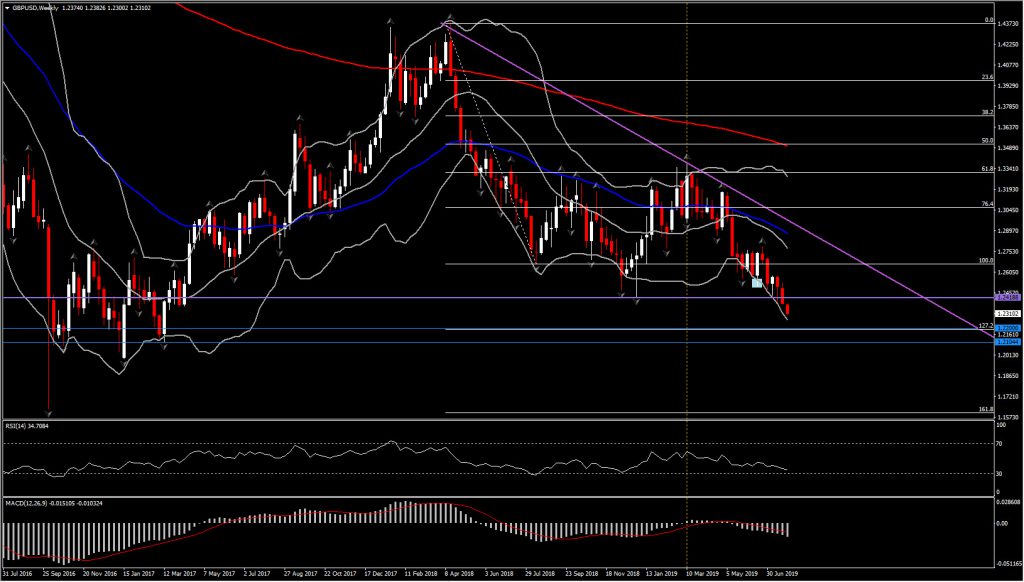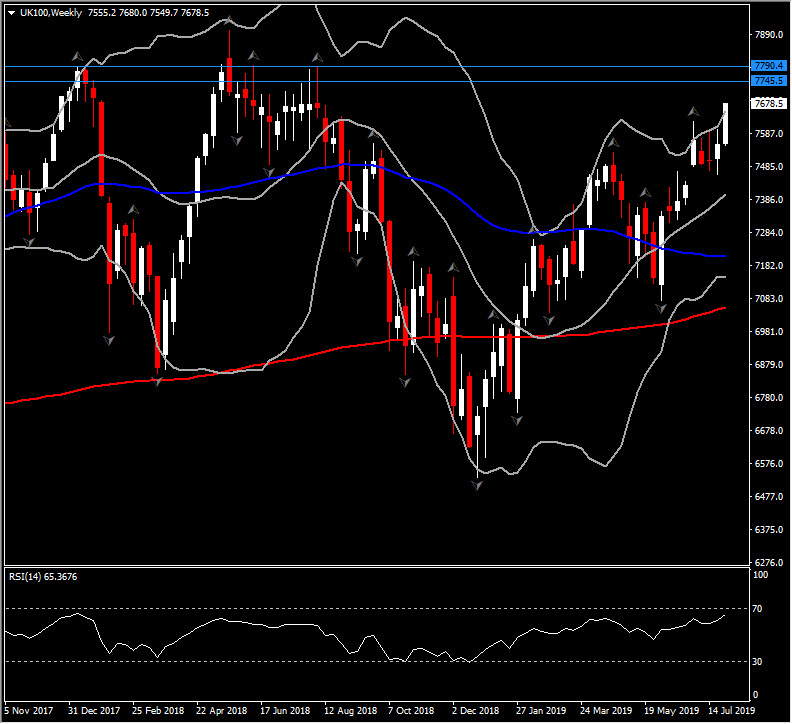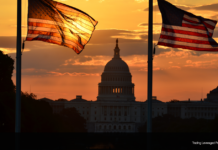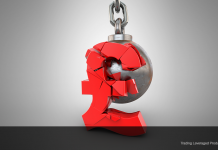Sterling has started the week under a lot of pressure, which follows weekend polls showing, in one case, a 10-point “Boris bounce” swing in favour of the Conservative Party. This will up odds for the new prime minister calling a new election, which he needs to do, and win, if he wants to strengthen his negotiating position with Brussels (as things stand, Parliament would likely block a no-deal Brexit).
Cable has printed a fresh 27-month low at 1.2300 while EURGBP has lifted back above 0.9000. Sterling is likely to remain biased directionally lower. Cable has trend Support at 1.2200 (Fib. level 127.2 December 2016 low).
UK100 shrugs off no-deal Brexit risks and continues to benefit from a weaker Pound, but also confirmation from LSE Group of a USD 27 bln deal to buy financial data group Refinitiv. UK100 is the main outperformer among European stock markets this morning and up 1.2%.
On the Brexit Front:
A new prime minister, a new cabinet, and a new hard line, no-compromising stance on Brexit — calling on Brussels to bend on the Irish border backstop or else face the UK leaving without a deal. But there is little sign that the EU will offer anything more than is already agreed in the Withdrawal Agreement with former PM May.
Newly appointed foreign secretary, Dominic Raab, accused Brussels of being stubborn while saying that the Irish backstop is “the most obvious glaring flaw” in the Brexit deal, and that the EU “must know that we’re serious” on leaving without a deal if necessary. An Irish government minister, Michael Creed, retorted by re-emphasizing the already oft restated EU position: that removing the backstop — which guarantees that the Irish land border will remain free flowing and open post Brexit (by effectively putting a border down the Irish sea if necessary) — “isn’t going to happen.”
The major problem for Boris Johnson and his Brexiteer cabinet is that they are a minority government, depending on the 10 votes of Northern Ireland’s DUP to govern with a super-wafer-thin majority of just two in a Parliament that is against a no-deal Brexit, and with members in their own Conservative Party set on stopping the government from triggering a no-deal Brexit (joining with opposition in a vote of confidence if that’s what it takes). This renders the government’s negotiating position with the EU as simply put: weak.
This is why Boris, despite the denials, is likely to risk calling a new general election, to seek a new and clear mandate from the public for a no-deal-if-necessary Brexit. With the leader of Labour, the principal opposition party, Jeremy Corbyn, unpopular, the latest polling suggests that the Conservative Party would win with an increased margin.
This means that markets should take the possibility for an economically disruptive no-deal Brexit scenario seriously.
Click here to access the Economic Calendar
Andria Pichidi
Market Analyst
Disclaimer: This material is provided as a general marketing communication for information purposes only and does not constitute an independent investment research. Nothing in this communication contains, or should be considered as containing, an investment advice or an investment recommendation or a solicitation for the purpose of buying or selling of any financial instrument. All information provided is gathered from reputable sources and any information containing an indication of past performance is not a guarantee or reliable indicator of future performance. Users acknowledge that any investment in Leveraged Products is characterized by a certain degree of uncertainty and that any investment of this nature involves a high level of risk for which the users are solely responsible and liable. We assume no liability for any loss arising from any investment made based on the information provided in this communication. This communication must not be reproduced or further distributed without our prior written permission.





















